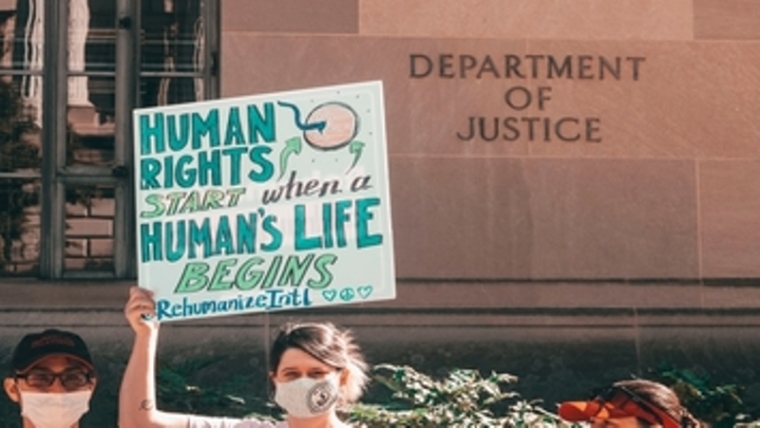
In 2020 alone the world saw the undertaking of 30+ different terrorist attacks. Ranging from a single fatality to beyond 100 individuals in a single act, these events have become common place In most of our lives.
Although already known, the 2019 Mosque Shootings in Christchurch brought this cold hard reality of deep depravity right to our front doors.
Whether it be violence, racism, deceit, abuse, neglect or acts of terrorism and political violence, atrocity strikes as revolting to us as witnesses and spectators. Our initial horror is soon replaced with a cool focused desire to see justice brought in its entirety upon the atrocities perpetrator and peace and comfort to its victims.
This is a seemingly natural reaction, and extremely similar to my own experience in light of the Christchurch shootings.
Yet without sounding insensitive to the experiences of many who lost love ones in such or similar events, I was not entirely sure as to why I felt this way. Or why to my own shame I typically will only ever shed tears for ‘my own people’ and not those of other nations?
How do we make sense of the chaos of atrocity, of our empathy or apathy to such events and what it demonstrates about God and his creation?
Created in his image
Although a bitter pill to swallow, the first and foremost crime committed against anyone when an atrocity has occurred is against God.
Before even our own hurt, loss and anger the greatest wrong that has been done is against the creator of all things. This is because of who we belong too and whose image we were created in.
“So God created man in his own image, in the image of God he created him; male and female he created them.” (Genesis chapter 1, verse 27)
8 chapters later and following the death of Abel at the hands of Cain causing God to cry out that “the voice of your brother’s blood is crying to me from the ground” (Genesis chapter 4, verse 10), God lays out for Noah the steps to be taken when unjustified murder has occurred whilst at the same time demonstrating the severity of crime in his eyes through the punishment to be given.
He commands that “Whoever sheds the blood of man, by man shall his blood be shed.”
It is clear that our revulsion at the thought of atrocity and our cries for justice are not merely due to the role of evolutionary forces but from the influence of a moral order stemming from a creator.
That man and woman were created in God’s image and his image is not be mistreated. So why might I feel this way for some and not others?
‘Patriotic Inclinations’
In the world of Sociology, the concept of Imagined Communities plays a huge role in attempting to explaining this question.
Simply put, its author Benedict Anderson argues that nation building is a socially constructed process in which people imagine themselves as part of a larger community that share common characteristics (i.e. live on the same land mass, accents, skins colours, common history, values etc).
As a result, our social distance with certain people we don’t personally know is pulled closer, increasing the likelihood that when someone of ‘our nation’ experiences hardship we’re more likely to feel empathy for that person.
This is argued to be why our news often won’t report all the atrocities that happen globally everyday unless one of them has included the death/injury of a fellow countrymen.
These ‘imagined communities’ aren’t inherently bad things. Applied on a more micro level, it demonstrates how Christian communities are cohesive ss community is based upon a shared belief in God rather than personal tastes, preferences or goals.
It becomes dangerous when it dulls our sense of empathy for others because of its isolationism and favouritism. Something in direct contradiction to Christ’s character.
As mentioned before, man is created in God’s image. We should pray that we would be reminded of this so that we would not grow callous to those who are not of our own ‘communities’ or nations.
Distorted communities
Should Christians then see an atrocity resolved at the prosecution and handing out of justice to its perpetrator as per God commanded throughout the old testament?
I don’t think so.
Dave Grossman in his monumental study (On Killing) on the psychological effects of killing demonstrates that those who have carried out atrocities have had to mentally disassociate their victims from their humanity to allow them to remain sane in the aftermath of their actions.
This process of dehumanization occurs largely according to Grossman in ‘community’ settings in which violent ideology is encouraged and trained into individuals. Instances such as the Rwandan, Bosnian and Armenian genocides are all prominent examples of this.
Demonstrating that at its worst, a view of humanity that doesn’t recognize humanity as made in the image of God will ultimately leave room for violent and evil individuals to fatally distort Godly justice and moral order.
While God calls for us to rest in the knowledge that he will bring justice to all wrongs on this earth, and he most certainly will, we’re still called to be salt and light in the meantime.
Demonstrating our care for all people equally regardless of association, through all of our actions, thoughts and concerns so that we might combat a distorted and potentially deadly view of humanity.

Isaac Claasen is originally from Christchurch but grew up in Auckland on the North Shore. If not studying, spending time with friends or watching NBA he is most likely reading a book pretending to be an intellectual.